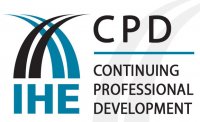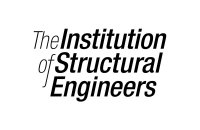Our Role of the Temporary Works Coordinator (TWC) and Temporary Works Supervisor (TWS) course aims to improve the delegate’s ability to control, monitor and supervise the implementation of commonly encountered temporary works and raise their risk awareness, adhering to newly revised BS 5975:2019.
The newly revised BS 5975:2019 has been extensively modified to cover the control and supervision of Temporary Works. It is therefore important that those involved in the site supervision of construction works are aware of current standards that affect them and are alert to potential problem areas that can arise in temporary works.
The role of the TWS/TWC is central to the successful implementation of temporary works hence the specific roles and duties of those so appointed needs to be clearly understood, both by those appointed in this role and those working with the appointed person.
The HSE have expressed concerns about the implementation of the requirements of BS5975, in particular for smaller contracting and sub-contracting organisations.
Available as an online training course and an online in-house training course.

Aims & Objectives:
On completion of this course attendees should:
- Understand the process required to implement temporary works in construction
- Be more risk-aware in relation to specific temporary works situations
- Understand the duties and responsibilities of the TWC
- Understand the specific role and duties of the TWS
- Be aware of the effect of change in site condition or method of working on temporary works and how to react
- Appreciate the relationship of temporary works to the CDM and Health and Safety legislation
- Be more effective in their site roles in relation to temporary works
Course Outline:
- Legal and contractual issues in temporary works
- Relationship between BS5975 and health and safety and CDM regulations
- The rationale behind BS5975 – the code of practice for falsework
- The role of temporary works in construction projects
- The interdependence of design and site condition
- An overview of possible risks and failures in typically encountered temporary works e.g.
- Scaffold
- Falsework
- Excavations
- Earthworks
- Piling
- Cranage
- Concrete and Formwork etc
- Checking and inspection process for temporary works
- Assessing risks in temporary works
Mode of Delivery:
- An examination and discussion of key issues, using Power Point presentation
- Examination of issues raised using case history Exercises
- Group Exercises to develop risk awareness
- Discussion and review to consolidate understanding
- End of course assessment with certificate of success issued by Symmons Madge Associates.
- Please note: There will be two levels of assessment – for Supervisors and Coordinators
Benefits of Attending:
- Be more effective in their roles and duties with respect to temporary works
- Have an improved ability and confidence in supervising temporary works
- Have increased awareness of factors that may compromise the successful implementation of temporary works and be better able to react to change
- Understand the sensitivity of standard temporary works systems to changes that can cause potential failure or collapse and hence be more risk aware.
Intended For:
Anyone involved in the supervision or management of temporary works on site, engineers, site supervisors, section heads, of both main and sub-contractor organisations in civil engineering and building.
Pre-Course Requirements:
- Have a background awareness of basic temporary works
- Have experience of site operations
- Be involved in the supervision of construction works
Testimonials – what our clients say...
Graduate Engineer, Knights BrownVery informative and up to date. Evidence and case studies were informative.








